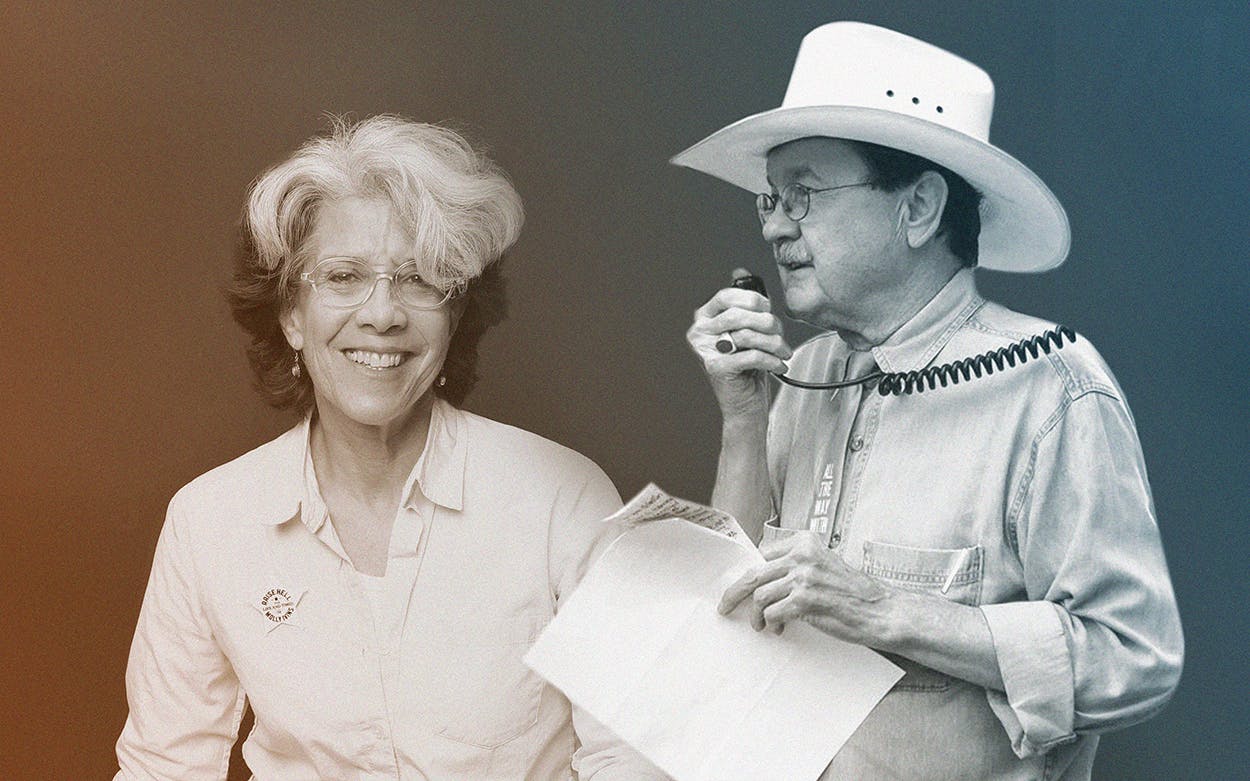Subscribe
Seven years in the making, Raise Hell: The Life and Times of Molly Ivins premiered at January’s Sundance Film Festival, played South by Southwest in March, and is now in theatrical release across Texas. The feature-length documentary chronicles the wit, courage, and sometimes messy private life of the best-selling author, journalist, and Pulitzer Prize-nominated syndicated columnist who died after a long battle with breast cancer in 2007. In the movie, Dan Rather and Rachel Maddow headline a collection of friends, colleagues, and fans who put Ivins’s caustic wit and fearlessness in context. For our podcast session, the film’s director, Janice Engel, and longtime Ivins friend Jim Hightower trade their favorite Ivins stories, detail her prescient takes on what’s led to our current political divide, and attempt to answer the big question: How much different would today’s journalism landscape be if Molly Ivins were still working her beat?
Three takeaways from their appearance on the National Podcast of Texas:
1. Although Engel and Hightower agree that Ivins and former Texas governor Ann Richards were close friends largely cut from the same cloth, Hightower believes the distance that developed between them after Richards took office was rooted in Ivins’s shift in a populist direction.
“Ann never went the populist direction,” Hightower says. “She courted the bankers. She was certainly totally progressive and was a strong liberal. Ann was just maybe more cautious and didn’t want to take on that aspect of the power structure. She probably felt she was taking on enough of the power structure on the women’s issues and the abortion issues. But she wouldn’t go after the bankers and the corporate interests that Molly came to feel were just mining the state like it was their own personal property.”
2. Engel says she’s not surprised that moviegoers walk away with a sense of how prescient Ivins was. She believes that prescience is at the core of Ivins’s legacy.
“She saw it coming,” Engel says. “Molly was a student of history, and she knew that history repeats itself. And it’s just that the cycles are getting smaller, the distance between shorter, and they’re happening faster and faster. And we live in a time where people don’t do the deep dive. They don’t do the investigation to find out, first of all, what’s true, what’s not true. So, unfortunately, much of what she wrote and what she said fifteen, twenty years ago is happening right now. And it’s accelerated.”
3. Despite the abundance of wit and funny one-liners in Ivins’s writing, Engel believes Ivins saw comedy as more of a populist tool than as a chance to pile up punchlines for laughs.
“Molly knew that humor was the door-key to the brain, “ Engel says. “You’ve got to unlock that little door to get people to actually listen. So, if you think about it, when you are laughing at a joke, you’ve taken it in, you’ve thought about it, you laugh, and endorphins are released. Then it gives us the ability to actually come to the table and maybe start talking to one another. The powers that be—the corporate oligarchy that we’re currently in—don’t want that. They want this chaos. They don’t want us to talk to each other because then we’re going to figure out that we have much more in common. And Molly knew this.”






